Taiwan Votes 2024: 'Monitor, lobby, assist' - youth activists fuelled by passion but struggle with low salaries
Activism in Taiwan starts from a relatively young age through platforms such as students’ associations in high school. Effecting change is satisfying but sacrifices are involved, NGO workers say.
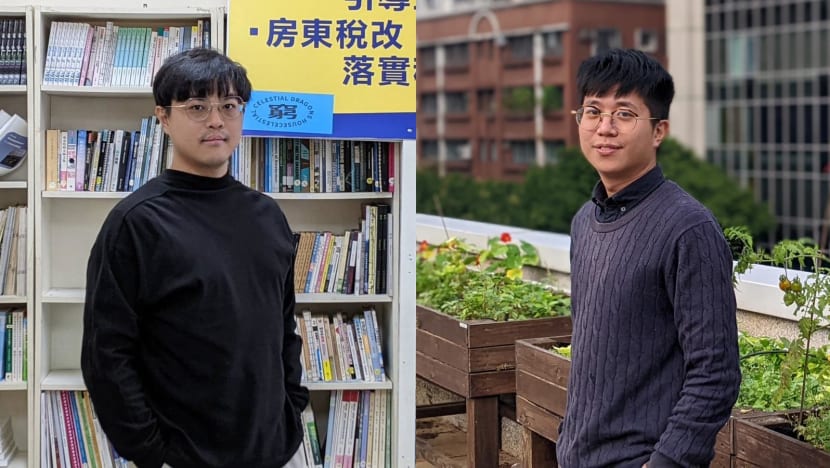
Housing researcher Liao Ting-hui (left) and NGO managing director Alvin Chang enjoy their work in advocacy. (Photos: CNA/Neo Chai Chin)

This audio is generated by an AI tool.
TAIPEI: After getting his master’s degree in sociology, working for a non-governmental organisation (NGO) felt like a natural step for Mr Liao Ting-hui.
He had participated in other social movements and helped establish a campus labour union previously. OURs, a non-profit that focuses on urban transformation and policies, happened to be hiring, so he joined the organisation in February 2019.
The housing issue is a “very important one” in Taiwan, but the number of non-profits devoted to housing is small compared to groups dedicated to the environment or animals, said Mr Liao, 33, a research fellow at OURs.
For another young Taiwanese, 26-year-old Alvin Chang, youth advocacy was a path he chose after graduating with a sociology degree.
He had joined a student association in university, and was looking for a group to champion greater involvement of youths in decision-making.
He found a lack of such groups and decided to start his own organisation, the Taiwan Youth Association for Democracy (TYAD), in 2018 with two others who studied social work and law.
Initially, the authorities did not really take TYAD seriously, he said. But many of the youths had prior experience in other movements, such as efforts to lower the voting age.
“We failed then, but we know how to hold a press conference (and) we know how to lobby the legislators or tell them to (apply) more pressure on different ministries,” he said.
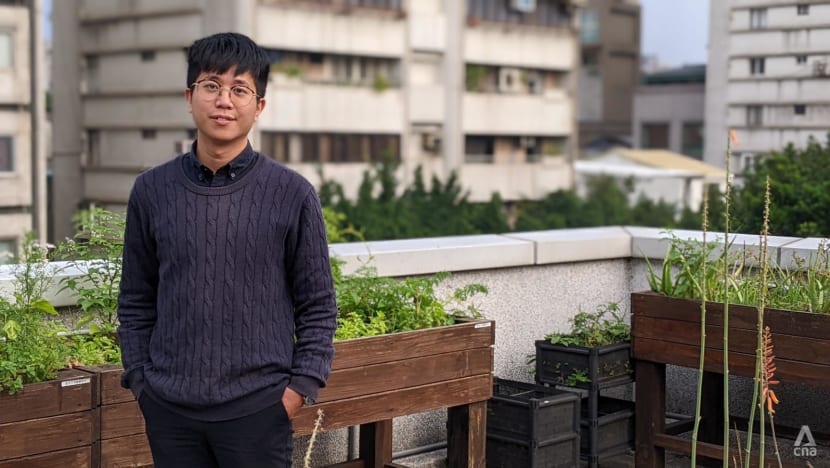
Advocacy and activism are part of daily life in Taiwan, and activism starts from a relatively young age through activities such as participation in students’ associations in high school.
Taiwan’s youth voters are seen as a key segment, and presidential candidates and parties have tried to win them over in the Jan 13 election. On their part, youths have also not hesitated to speak up.
Momentum for youth activism grew after the student-driven Sunflower Movement in 2014, which saw protesters occupying the Legislative Yuan to oppose the then-ruling KMT’s attempt to push through the Cross-Strait Service Trade Agreement without a clause-by-clause review.
In 2015, Taiwanese students also protested history textbook revisions that they perceived to promote a pro-China view.
Mr Chang said Taiwan’s youths garnering greater attention during election campaigns is a “good change” that is set to continue in future.
A vicious circle, he said, would be youth voters not showing up to vote because they feel politicians “do not really care about us”, and politicians in turn feeling that they do not need to have policies that address concerns of youths.
Youth candidates also feature in Jan 13’s legislative elections. For instance, six legislative candidates in their 30s from various parties have formed a group called The Generation.
They consider themselves members of the Sunflower Movement generation, and want to cultivate the next generation of Taiwan’s leadership.
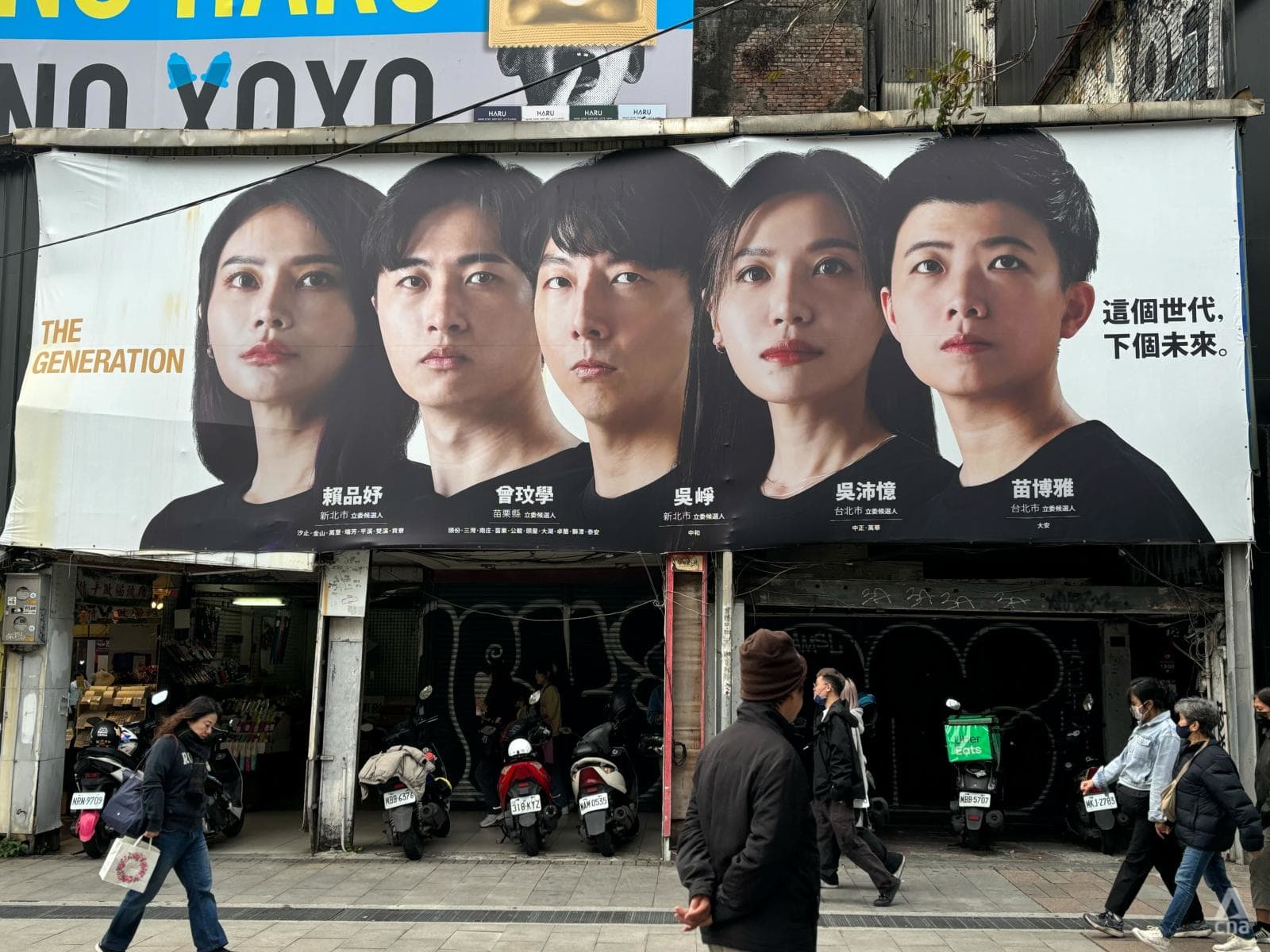
PASSION FOR ADVOCACY
Other youths aspire to work behind the scenes or in NGOs.
Third-year political science student Alice Yang, 21, said she hopes to work for an NGO after graduating, or become an assistant to a legislator. The latter is the path taken by about one-third of her seniors at Soochow University.
Mr Liao likes helping to effect change in policies as part of an NGO.
OURs, which has four full-time staff, has suggested to the Taipei City government a programme where the elderly and younger people swap residences, for instance.
Many middle-aged and elderly people own houses, but in buildings that do not have elevators. Such homes may no longer be suitable as they age, said Mr Liao.
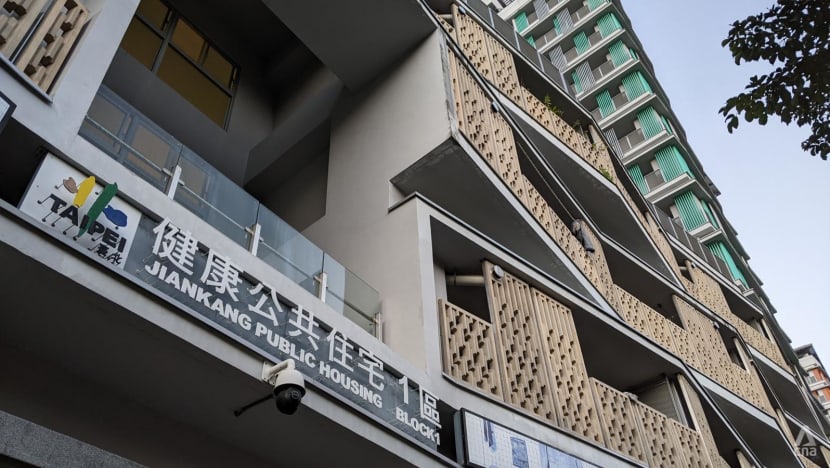
OURs proposed a project to allow elderly people to live in social housing and rent out their original homes to young people, who do not have problems climbing stairs, said Mr Liao.
Unable to afford a home and being unable to rent decent accommodation, many young Taiwanese have borne the brunt of the island’s housing challenges, which are especially acute in the capital. Various surveys, including by OURs, have found high levels of public dissatisfaction with housing prices, noted Mr Liao.
Implementing the project is “not as easy as it sounds” and “a bit like changing the water for a fish”, he said. A trial began last year after two years spent developing the concept, getting approval from Taipei City government and other intricacies.
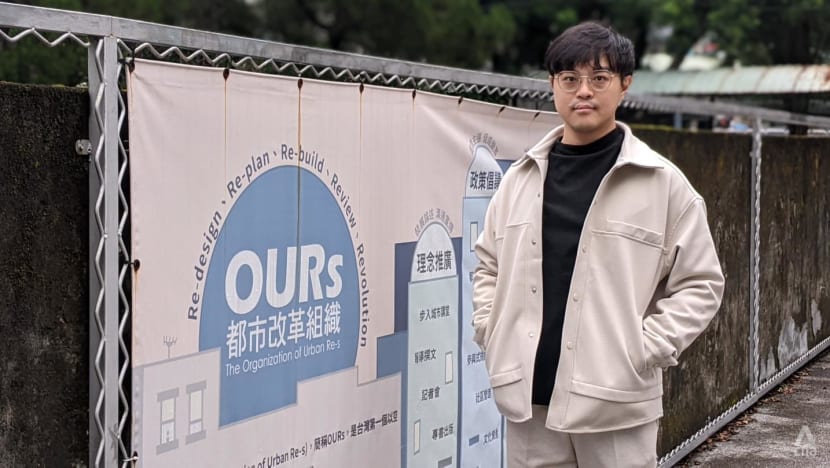
Another suggestion OURs has made is the method for calculating rent for social housing. It believes rent should be based on tenants’ income, instead of on tenants’ status and whether they belong to groups considered to be socially disadvantaged.
While OURs lobbies the government, it also assists and cooperates with officials, said Mr Liao.
“For good policies – for example, if the government wants to build social housing – we will provide opinions and even support them when there are protests (from other quarters),” he explained.
Some civil servants also tell the activists when they encounter unsatisfactory policies that they are unable to push back on their own. “We will put pressure on (the civil servants’) superiors (so) people at the bottom can do things easier,” he said.
“The government understands that when we criticise them, we will always come up with alternative plans too.”
FREEDOM TO CRITICISE
TYAD and OURs are careful about their sources of funding, said Mr Chang and Mr Liao.
OURs’ main financial source is fundraising, but it also works on a small number of smaller-budget government projects that comprise work that the NGO already wanted to do, said Mr Liao.
“We try to take as few government (projects) as possible, and we don’t take money from political parties,” he said. While this restricts its funding, the upside is a “high degree of independence” and the freedom to criticise even the presidential frontrunner’s housing policies, he said.
Mr Liao knows quick solutions to the complicated problem of high prices are elusive. “But at least we should try our best to solve the rental problem so that everyone can rent well, transparently and stably,” he said.
There is still a long way to go for housing justice, and he plans to continue pursuing the cause. “I want Taiwan to become better and I want to spend my lifetime seeing the results.”
Ahead of the 2024 elections, TYAD published a white paper on youth issues and organised a presidential forum for youths last November attended by Democratic Progressive Party candidate Lai Ching-te and Taiwan People’s Party candidate Ko Wen-je; the Kuomintang’s Hou-Yu-ih was invited but did not participate, said Mr Chang.
To encourage students to return to their hometowns to vote, the association also raised about NTD$927,000 through public donations to subsidise their transport fares, said Mr Chang. The TYAD organised similar initiatives for the 2020 election.
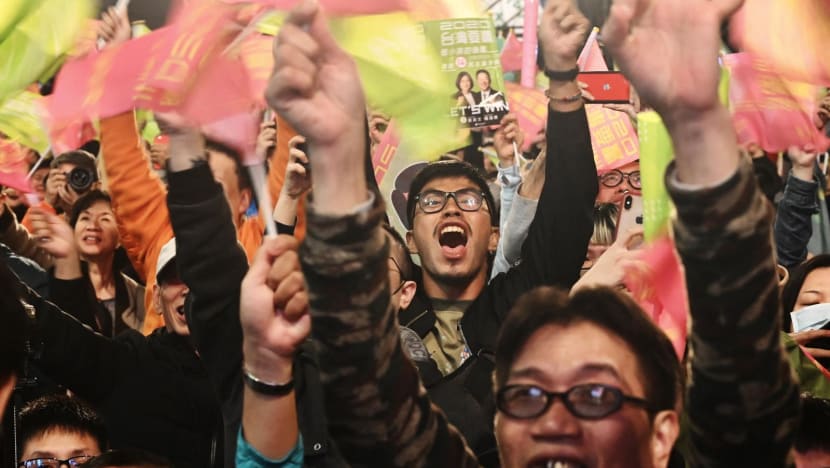
“We don’t take money from the government, the Ministry of Education, because we want to monitor them,” said Mr Chang. Securing enough public donations for its work is “difficult, but it’s possible”, he said.
TYAD’s other work includes engaging legislators and the Ministry of Education on students’ rights and other issues. Mr Chang said youths should be included in policy making through youth committees in the local and central governments.
ARE SALARIES ENOUGH TO START A FAMILY?
Much as they enjoy the work, salaries at NGOs typically pay less and activists have had to make sacrifices.
Last February, Mr Liao’s partner broke up with him because she could not see their future together.
With an income of about NTD$35,000 to $36,000 a month, Mr Liao, a housing researcher, acknowledged he “may not be able to afford raising children”.
He lives with his brother in a 46-year-old apartment in New Taipei City owned by their parents, who live elsewhere. The brothers pay rent that is lower than the market rate to their parents.
“This is one of the reasons I can accept a job, career and salary in an NGO,” said Mr Liao.
The little ironies of his job and living situation aren’t lost on Mr Liao. But 2024 will be a year of reckoning, one in which he plans to make a decision about his future.
Although his girlfriend later got back together with him because “her mom said that her family was actually rich and she did not need to worry about (this financial issue)”, he was so busy last year that he often stayed late in the office.
“I really felt I could provide no future (for her),” he said.
“No matter how rich one’s partner is, it is not ideal for a man with my income to have a child in New Taipei City. Even if your partner is rich, both sides still need to have a relatively equal relationship and you cannot leave everything to your other half to pay.
“Or maybe you take on more housework as an alternative, but I don’t have the time to do it.”
He has seen colleagues leave when they move on to a new phase in life. A colleague left last year after 11 years with the NGO because he was getting married.
“In the past, he was in charge of everything in the office. As long as I did my research, if the sky fell, (he would be there) to hold it up,” Mr Liao said. “I even bought a lottery ticket hoping that I would win. The first thing I would have done was hire him back.”
The former colleague’s salary is now double his previous pay, said Mr Liao. “I think this is the dilemma of NGOs.”



















